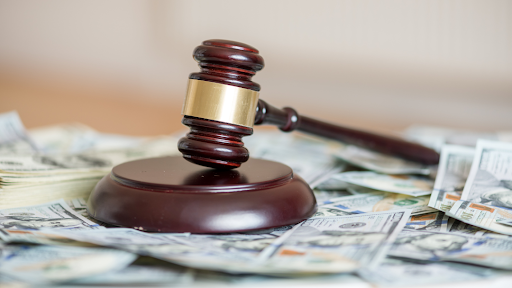The Purpose of Bail
Bail is essentially a simple financial arrangement that allows individuals accused of a crime to be released from custody while awaiting their court hearings so that they do not have to wait in jail. It serves two primary purposes:
#1. Ensuring the Defendant’s Court Appearance – Bail motivates defendants to show up for their court appearances on time by providing a financial incentive to do so.
#2. Protecting the Community – The decision for a court to set bail or not, also helps protect the community by keeping potentially dangerous individuals off the streets until their court date.
The Various Types of Bail
When it comes to bail, there are three common types:
- Cash Bail – Defendants can pay the full bail amount themselves, in cash, to the court. In this case, the defendant will get his or her bail money back, minus any fees, if they fulfill their court obligations.
- California Surety Bond – Most defendants turn to bail bonding companies in their local area to obtain what’s called a “surety bond” or a “bail bond.” The defendant pays a fee to the bonding company, and they cover the full bail amount. If the defendant appears in court as required, the bonding company will be released from its financial obligation.
- Property Bond – In certain situations, a defendant can use property as collateral for their bail. If they fulfill your court obligations, the property bond can be released, and the property is returned.
How Long Does It Take for Defendants to Get Bail Money Back?
We often hear the question “How long does it take to get bail money back,” and the timeline for if and when you get bail money back depends on several different factors:
- Fulfilling Court Obligations – The most important factor is appearing in court as required by the judge. Once the case is resolved, and the defendant has fulfilled all court obligations, they should be eligible to get their bail money returned.
- Administrative Processing – The court and the bonding company will need to complete administrative processes, which can take some time depending on how full the jail is, how well-staffed the court is, what day of the week it is, etc.
- Outstanding Fees – If you obtained a surety bond through a bail bonding company, you may have to pay their fees, which can be non-refundable. In the state of California, bail bond companies are limited to how much they can charge for their fees, and it is typically set around 10%.
Do You Get Bail Money Back?
If you’re still wondering, “Do you get bail money back?” the answer is yes, you can typically get your bail money back, but only under certain conditions:
- Cash Bail – If you paid the full bail amount in cash, you will generally get that money back, minus any fees or fines imposed by the court.
- Surety Bond – If you used a bail bonding company to pay bail, you won’t get the fee you paid to them back (usually 10% of the bail amount). However, you will no longer be responsible for the full bail amount once your court case is resolved.
Overall, whether or not you get your bail money back depends on the type of bail you posted and your ability to fulfill your court obligations. When you are searching for “bail bonding companies near me,” make sure they are able and willing to help you navigate the process and secure your release while minimizing the financial burden on you and your family.
Remember to Adhere to Court Requirements to Get Bail Money Back
Remember above all else, that adhering to court requirements is essential to secure the return of your bail money. If you’re still unsure about the specifics of your case or have any questions about the bail process, it’s highly advisable to consult with legal counsel and/or your bail bonding agent for individual guidance. You can reach us at Roseville Bail House at (916) 782-7048. We look forward to helping you in your time of need!
.png?width=1500&height=250&name=BAIL%20HOUSE%202024%20dark%20background%20(1).png)
.png?width=780&height=130&name=BAIL%20HOUSE%202024%20(2).png)
